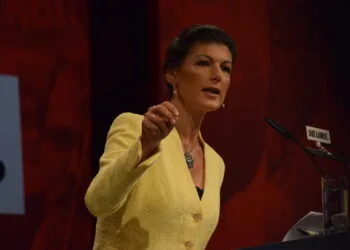Brussels – Disavowing the speculations that had been going around in recent days, Germany’s Defense Minister, Boris Pistorius, has officially pulled himself out of the race for the chancellorship that was triggered by the collapse of Olaf Scholz‘s government earlier this month. The current Bundeskanzler will thus be the Social Democratic Party’s candidate and will have to try to stay in office, reversing the drastic collapse of the SPD‘s support.
For weeks, ever since the shaky and quarrelsome semaphore coalition had reached the end of the line last Nov. 6, there have been growing calls within Germany’s main progressive party to change quickly the chancellor candidate for the upcoming early elections, set for Feb. 23. The base and some in the SPD’s top leadership were clamouring for the replacement of Scholz, whose approval rating has plummeted in the past three years of government, with Defense Minister Boris Pistorius, who, on the contrary, is the most popular politician in Germany.
For days, Pistorius had maintained a relatively ambiguous position, declaring himself loyal to his boss but without explicitly denying that he was interested in running. Until last night, when, with a three-minute video, he publicly announced that he was calling himself out of the competition, declaring himself “unavailable.””This choice is absolutely mine, personal and autonomous,” he said, adding that “I did not launch this debate, I did not want it, and I did not put myself forward for anything.”
The move effectively clears the way for Scholz to become (or rather remain) the SPD’s chancellor candidate, in keeping with the tradition of an outgoing chancellor attempting re-election in the ballot box to his party’s leadership. According to rumours, pressure on Pistorius to step aside has come from the Social Democratic leadership and Scholz himself.
SPD cadres will meet on Nov. 25 to endorse the agreement on the chancellor candidate, while Scholz is expected to present his election manifesto on Nov. 30 in Berlin. Official endorsement of the candidate is expected to come at the federal congress scheduled for Jan. 11, some 40 days before the ballot box date.
The Social Democrats, who are currently in government in (minority) coalition with the Greens and, until last month, with the liberals of the FDP, are given by polls around 15-16 per cent, one-half of the Christian Democratic Union (CDU/CSU) led by Friedrich Merz (who polls steadily at 32 per cent). Barring any last-minute surprises, Merz will become the next head of the German executive, archiving the brief and lacklustre interlude of the Scholz chancellorship. Whatever the latter’s fate, Pistorius will remain a leading figure of the German centre-left in the coming years, and he may even retain the Defense Ministry in the new executive, which could be a big coalition CDU-SPD.
In second place in the polls comes the ultra-right wing of the AfD with 18-19 per cent. The environmentalists (who chose as their chancellor candidate the current minister of economy Robert Habeck) trudge between 11 and 12 per cent, while the FDP is in danger of failing to cross the 5 per cent threshold, which instead should be easily passed by the red-brown BSW.
English version by the Translation Service of Withub







